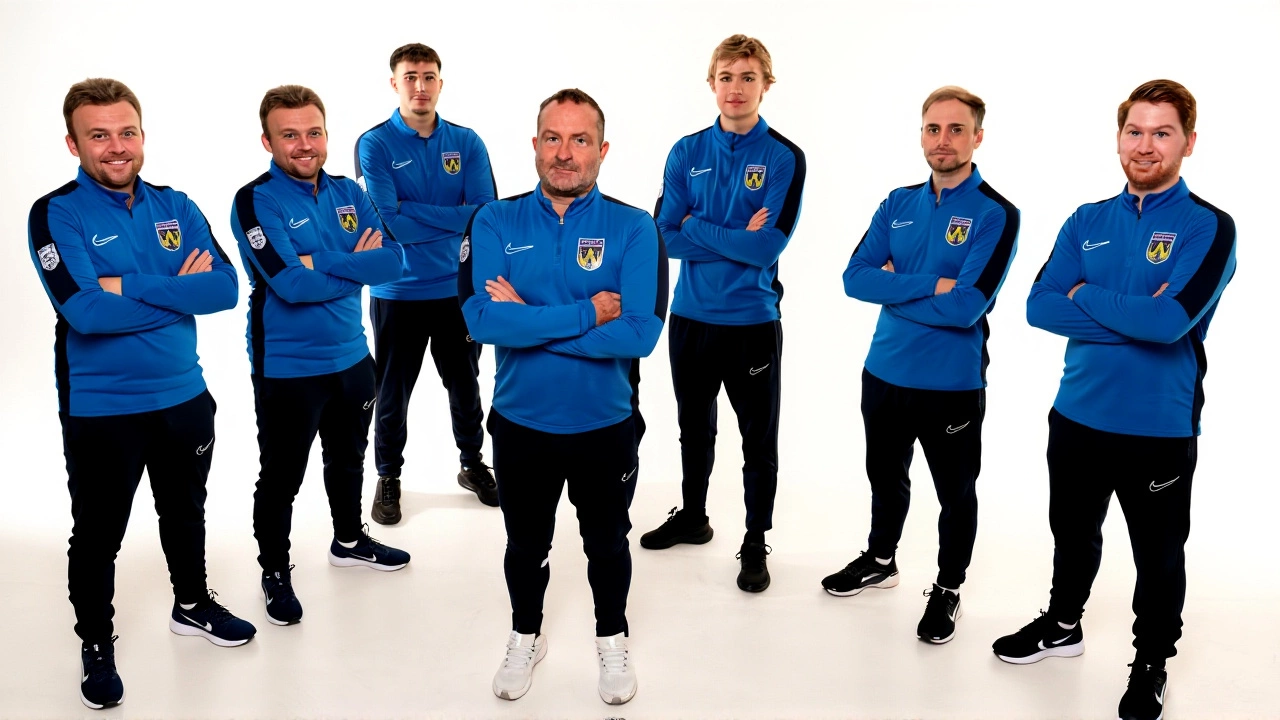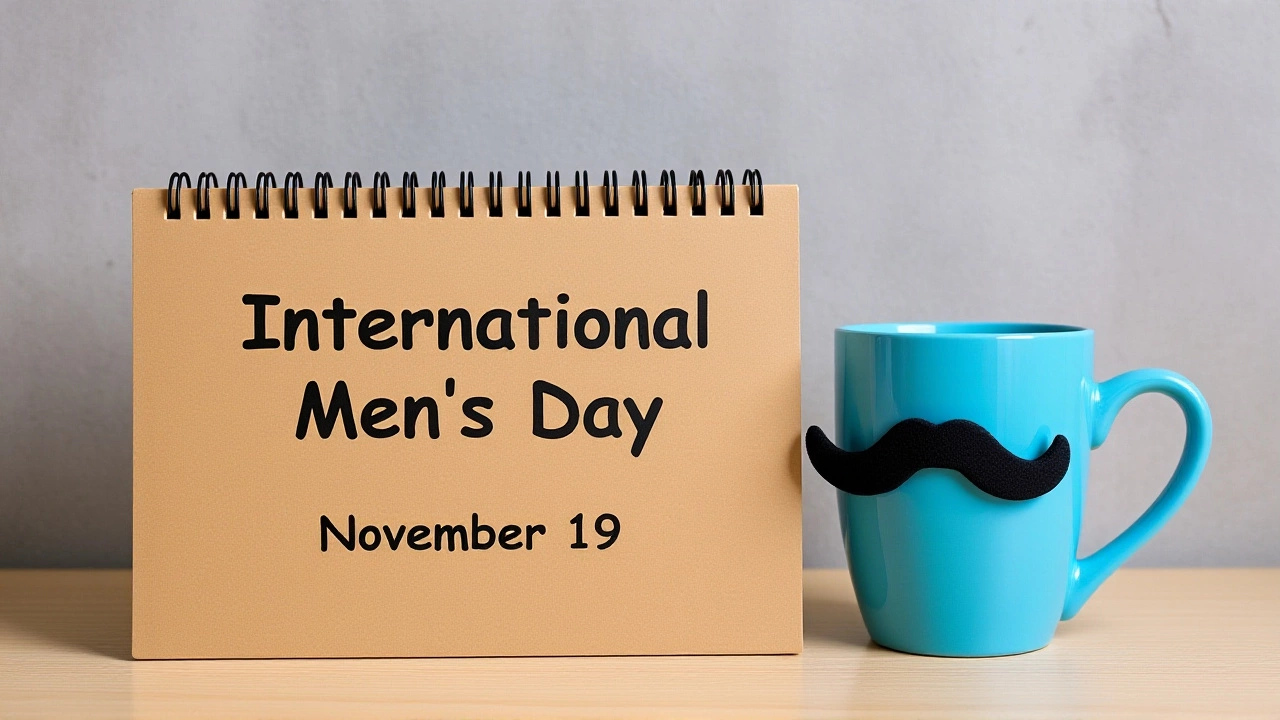On Wednesday, November 19, 2025, more than 80 countries will observe International Men's Dayglobally under the official theme "Celebrating Men and Boys," a call to recognize the quiet strengths, hidden struggles, and everyday contributions of males across generations. The date, fixed since the movement’s modern revival in 1999 by Dr. Jerome Teelucksingh in Trinidad and Tobago, has grown from a local initiative into a worldwide moment of reflection — not as a rival to International Women’s Day, but as its necessary counterpart. While women’s achievements have long been celebrated on March 8, the absence of a parallel global day for men meant decades of silence around issues like suicide rates, workplace fatalities, and emotional isolation — issues that now sit at the heart of 2025’s observance.
Why This Year Matters: The 'Celebrating Men and Boys' Theme
The theme isn’t just feel-good messaging. It’s a deliberate pivot from deficit-based narratives to ones of dignity and potential. According to the International Men's Day official website, the focus is on uplifting male role models — fathers who show up, teachers who listen, nurses who break stereotypes, and sons who dare to cry. The idea is simple but radical: men aren’t problems to be fixed; they’re people whose well-being is tied to the health of entire communities. In Australia and the UK, regional campaigns echo this with the phrase "Supporting Men and Boys," adding layers of practical support — from workplace mental health programs to school-based mentoring.
What’s striking is how the movement avoids competition. Early proponents, as noted by The Times of India, were clear: this day isn’t about diminishing women’s progress. It’s about filling a gap. While women’s health has seen decades of funding and public discourse, men’s health — particularly mental health — remains under-resourced. Suicide among men is four times higher than among women in many Western nations. In the U.S., men account for nearly 80% of all suicide deaths. That’s why 2025’s observance is heavily tied to the "Zero Male Suicide" initiative, with campaigns running from London to Lagos urging men to speak up and systems to listen.
Health at the Core: Screenings, Male Menopause, and Breaking Silence
Behind the slogans and social media posts, there’s a quiet medical revolution unfolding. Hindustan Times reported that urologists are urging all men over 30 to undergo eight key screenings — from prostate checks to testosterone levels — not as alarmist advice, but as routine prevention. Meanwhile, The Financial Express brought attention to what it calls "male menopause," or andropause — a gradual decline in testosterone that can trigger fatigue, mood swings, memory lapses, and depression. "It’s not just aging," one endocrinologist told the paper. "It’s a biological shift that’s often mislabeled as laziness or irritability. Men don’t need more discipline — they need better diagnostics."
These aren’t fringe concerns. The International Men's Day WebcastSydney will run for nine hours, from 3 p.m. to midnight AEDT, featuring voices from Africa, Europe, Asia, and the Americas. Panelists include psychologists, former athletes turned counselors, and even a prison chaplain from South Africa who’s seen how toxic masculinity fuels cycles of violence. "We don’t need more heroes," said one speaker in a leaked preview. "We need more honest conversations."

Global Reach, Local Impact
From Johannesburg to Jakarta, communities are adapting the day to their needs. In India, schools are hosting essay contests titled "My Father, My Hero." In Canada, barbershops are turning into informal mental health hubs, offering free coffee and listening ears — a nod to the cultural role of barbers as trusted confidants. In the Philippines, religious leaders are integrating messages of compassion into sermons, challenging the notion that strength means silence.
Even social media is shifting. Instagram posts from November 19, 2024, already show a trend: fewer "Happy Men’s Day!" memes, more raw testimonials. "I didn’t know I was depressed until I turned 35," wrote one user. "No one asked. No one checked. I thought I was just tired."

What’s Next? The Road Beyond 2025
The real test won’t be the webcast or the hashtags. It’ll be whether governments and employers translate awareness into action. Will companies offer paid mental health days for men? Will insurance plans cover testosterone therapy and counseling without stigma? Will schools teach emotional literacy alongside math? The International Men's Day official website says it’s not about one day a year — it’s about building a culture where men don’t have to choose between being strong and being human.
Dr. Teelucksingh, now in his 70s, told a reporter last year: "I didn’t start this to make men feel special. I started it because too many men were dying alone, thinking no one cared."
Frequently Asked Questions
Why is International Men's Day on November 19?
November 19 was chosen by Dr. Jerome Teelucksingh in 1999 to honor his father’s birthday and to create a date distinct from International Women’s Day on March 8. The day also aligns with the timing of several national men’s observances in the Caribbean and Europe, helping unify global efforts. It’s not arbitrary — it’s symbolic, intentional, and now firmly established.
How does International Men's Day differ from International Women’s Day?
While International Women’s Day focuses on gender equity, historical oppression, and advancing women’s rights, International Men’s Day centers on men’s health, emotional well-being, and positive contributions often overlooked. Both aim for equality, but from different angles — one addresses systemic barriers women face, the other tackles cultural silence men endure. They’re complementary, not competing.
What are the six pillars of International Men's Day?
Though not always listed publicly, the six pillars include: promoting male health, improving gender relations, highlighting positive male role models, celebrating men’s contributions to society, addressing discrimination against men, and creating safer spaces for boys. These guide every campaign, from school programs to national policy proposals, ensuring the day isn’t just symbolic but actionable.
Is "male menopause" a real medical condition?
Yes, it’s clinically known as andropause — a gradual decline in testosterone that begins in a man’s 30s and accelerates after 50. Symptoms include low energy, mood swings, reduced muscle mass, and memory issues. Unlike female menopause, it’s not abrupt, which is why it’s often dismissed. But studies from the European Association of Urology confirm its impact on mental health, and screening is now recommended for men over 30.
How can individuals support International Men's Day beyond social media?
Talk to the men in your life — not just about sports or work, but about how they’re feeling. Encourage them to get a physical, especially if they’re over 30. Support organizations like Movember or local men’s mental health groups. If you’re a manager, offer flexible leave for mental health. Small actions, repeated, dismantle the stigma that says men must suffer in silence.
Why is the global webcast timed for Sydney?
Sydney’s time zone (AEDT) allows the 9-hour webcast to span across the globe — starting in Asia, moving through Europe, reaching the Americas as they wake up, and ending back in the Pacific. It’s a logistical choice to maximize global participation. The event features speakers from over 30 countries, making it one of the most inclusive platforms for men’s issues ever assembled.
